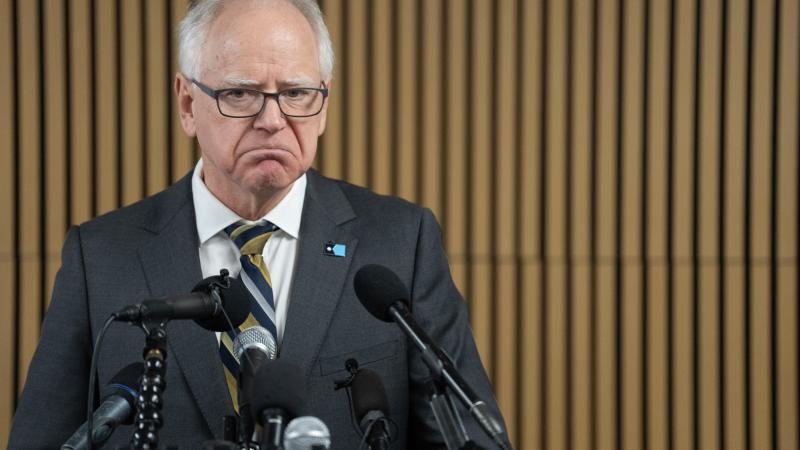Report: Louisiana could lose millions in gas tax revenues
Former Democratic Louisiana Department of Transportation and Development Secretary Shawn Wilson proposed the same to the Louisiana Electric Vehicle Task Force earlier this year, pointing to a 2022 report from the Louisiana Legislative Auditor that estimates fuel tax revenues could fall by $563.6 million if electric and hybrid vehicles account for 30% of new cars sold in the state by 2032.
(The Center Square) — A new report highlights Louisiana's declining gas tax revenues amid a government-motivated transition to electric vehicles and offers solutions to replace the funding.
A report issued last week by the Reason Foundation, a free market think tank, examined the impact on Louisiana's gas tax revenues based on different scenarios of electric vehicle adoption in the coming years.
Collections from Louisiana's 20 cent per gallon gas tax, the primary funding source for road and bridge work, increased from $590 million in fiscal year 2014 to $636.4 million in fiscal year 2019, before declining by 8% to $585 million amid the pandemic in 2020. By fiscal year 2022, revenues had rebounded to $622.4 million, but researchers expect increased fuel efficiency standards and electric vehicle sales to put collections on a downward trajectory over the coming decades.
"Under the worst case, in which a high-level shift to electric vehicles is assumed, potential fuel tax revenue in Louisiana would be reduced by almost 40% by 2040 and almost 49% by 2050," according to the report. "With a mid-level electric vehicle shift, Louisiana could anticipate a decline in fuel tax revenue to about $500 million by 2040 and slightly less per year through 2050."
The "most reasonable" mid-level scenario translates to a loss of $250 million by 2040 and over $325 million by 2050, assuming just under 40% of vehicles would be EVs by that time.
"After 100 years, per-gallon gas taxes are running out of steam," Robert Poole, director of transportation policy at Reason Foundation and author of the study, said in a statement. "As fuel tax revenue continues to decline, Louisiana should expect to phase out the gas tax altogether and replace it with per-mile charges."
Former Democratic Louisiana Department of Transportation and Development Secretary Shawn Wilson proposed the same to the Louisiana Electric Vehicle Task Force earlier this year, pointing to a 2022 report from the Louisiana Legislative Auditor that estimates fuel tax revenues could fall by $563.6 million if electric and hybrid vehicles account for 30% of new cars sold in the state by 2032.
Wilson called for a pilot program funded by the DOTD that would use the department's vehicles and other state vehicles to test the feasibility of a per-mile road usage fee. The pilot would be paired with pro-bono research from the Reason Foundation and others on the broader implications to the state as a whole, Wilson said.
"We would be paying gas taxes for … this pilot, but we would also be tracking data to see what it would be had we done the alternative, which is charging them for the mileage-based user fees," Wilson said. "Those are the two ideas (research and pilot) we have that I think would provide this body and the legislative body some real good data to assess and put into the hopper as you think about how do we fund transportation for the next 15, 20 years."
The Louisiana Legislative Auditor estimates the current gas tax revenues will be insufficient to address the state's nearly $15 billion in unmet transportation infrastructure needs, despite fees for hybrid and electric vehicles approved by the Legislature in 2022.
The recent Reason report shows Louisiana lags behind the nation in adopting electric vehicles, with an average of less than 700 new EV sales in the state per year between 2018 and 2020.
"In 2021 EV sales almost tripled to 1,841 and reached 2,782 in 2022, more than four times sales in 2020," according to the report. "By the end of 2022, battery electric and plug-in hybrid vehicles represented about 0.25% of light vehicles on the road in the state, as compared to just over 1% nationwide."
The study suggests a mileage fee to replace the state fuel tax, rather than an additional fee on top of the tax. It also urges lawmakers to imposer lower per-mile charges for driving on rural roads, and advocates strict privacy protections for users.
"Louisiana's objective should be not merely to replace the revenue that fuel taxes have traditionally provided but to remedy the other shortcomings of fuel taxes," Poole said. "These include lack of transparency, lack of accountability of road providers to road users, and the fact that that the fuel tax is a tax rather than a true user fee like utility bills."
Reason notes Louisiana highways ranked 40th in performance and cost effectiveness in the organization's 27th Annual Highway Report, far worse than neighboring Arkansas in 13th, Mississippi in 18th, and Texas in 19th.














